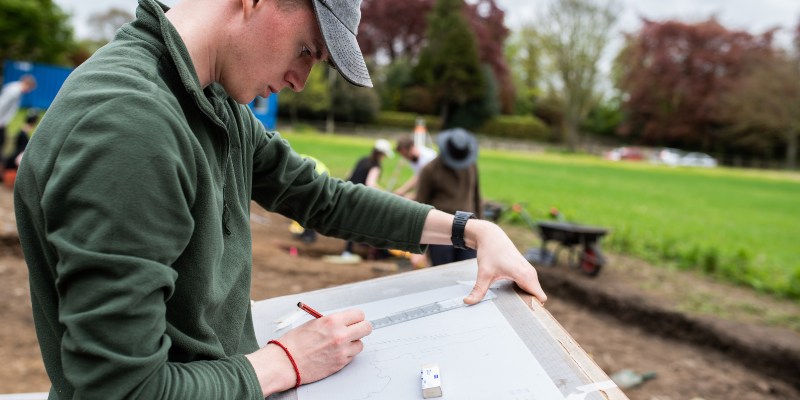| Length | Start dates (semester dates) | |
|---|---|---|
| PhD |
3 years full-time |
January |
|
PhD (by distance learning) |
3 years full-time |
January |
If your passion lies in archaeological research, our doctoral degrees provide the opportunity to combine academic rigour with creativity and innovation. Study with a distinguished department and receive expert guidance from our supportive staff.
Your research
At York, research in archaeology is wide-ranging. Our strengths are in human evolution and prehistory; Roman; medieval; historical and field archaeology; bioarchaeology; digital archaeology; African archaeology; buildings conservation and heritage; and experimental archaeology and artefact studies. Many projects are interdisciplinary, involving collaboration with researchers beyond the Department.
Collaboration is part of our core values. We engage with and impact national and international research communities, policymakers, and the public.

.jpg)
 (1).jpg)

.jpg)
.jpg)
.jpg)
.jpg)


